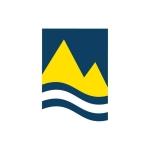Otago Natural Hazards Database goes live
A repository for information about natural hazards in Otago is now online.
The Otago Regional Council (ORC) has been developing the Otago Natural Hazards Database so the public can have better access to the hazard information the council holds.
ORC chairman Stephen Woodhead said the database went live today and is accessible through a link from the ORC website (www.orc.govt.nz).
Mr Woodhead said the database should not be confused with a Land Information Memorandum (LIM) and the public should continue to obtain these from district and city councils.
ORC has been working with Otago councils to structure the database so it supports their LIM processes, and that work is ongoing, he said.
“Information will continue to be added to the database over time. The ultimate goal should be for all hazard information held by local authorities and lifeline utilities in Otago to be accessible to the public through a single database or portal,” Mr Woodhead said
The hazard information accessible on the database includes:
· Information prepared for the Milton 2060 flood management strategy;
· An assessment of the vulnerability of Otago coastal communities to tsunami and storm surge published earlier this year;
· The report Natural Hazards of the Taieri Plains, and an accompanying updated flood hazard map;
· Photographs of more than 45 floods on the Taieri Plains, from 1923 to present;
· Hazard maps produced for Stoney Creek, Wanaka following the debris flow event in 2004;
· Information on the range of hazards affecting Glenorchy, including the Buckler Burn landslide dam;
· Flood hazard maps for Alexandra.
ORC director of environmental engineering and natural hazards Gavin Palmer said the information would be available in various electronic formats and was searchable by hazard type or by property address, rapid number, valuation number, or general locality.
“Metadata (data about data) gives the source and assumptions of the information so that the user can make an informed decision as to whether and how they should use it for any particular purpose,” he said.
Dr Palmer said concentrating all of Otago’s hazard information in one online location would save people time and effort, and have the added benefit of improving their awareness and knowledge of the range and location of hazards.
